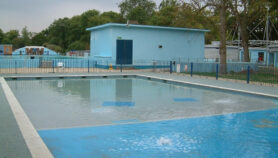By: Mustak Hossain
Send to a friend
The details you provide on this page will not be used to send unsolicited email, and will not be sold to a 3rd party. See privacy policy.
[DHAKA] Bangladesh must drastically expand water testing and the use of deep tube wells, say international researchers, who urge for government strategy revisions to combat arsenic poisoning in drinking and irrigation water.
Some 57 million people in Bangladesh drink water containing arsenic levels far exceeding World Health Organization recommendations, increasing their risk of cancer and nervous disorders.
More than half of those at risk have no adequate access to safe water, say the researchers writing in Science Friday (15 December).
Their call is directed at Bangladesh’s 2004 National Policy for Arsenic Mitigation, which they say has had little impact and needs major revision.
In particular they denounce the policy’s emphasis on using filtrated water from shallow wells.
Surface water — typically rivers or ponds receiving waste from human latrines or industry, and increasingly used for aquaculture — has a high risk of exposure to microbial pathogens, say the scientists. These are unlikely to be removed through sand filtration, as recommended by the government.
Instead, they urge government endorsement of deep tube wells — proven to be amongst the most effective sources of safe water.
"We have suggested a thorough revision of the national policy as it had much emphasis on using risky surface water," lead researcher M. Feroze Ahmed told SciDev.Net.
A source of confusion has been that older sources of groundwater, low in arsenic and therefore safe for tapping into, range in depth from 30-200 metres, say the researchers.
Deep wells are more expensive, one of the reasons why the government made them a low priority.
The team also calls for regular water testing. A 1999 well-testing campaign was the most effective to date in curbing exposure to arsenic poisoning in the country, leading to nearly a third of tested villagers changing their water source.
Deep tube wells should also be tested annually, said Alexander Van Geen, one of the researchers, based at the Lamont-Doherty Earth Observatory of Columbia University in the United States.
The researchers warn against deep well contamination if large amounts of water are removed for irrigation, making irrigation an important policy focus.
They also recommend that information campaigns stress the grave health effects of arsenic — for instance, its effects on the mental development of children.
Link to full article in Science
Reference: Science 314, 1687 (2006)













